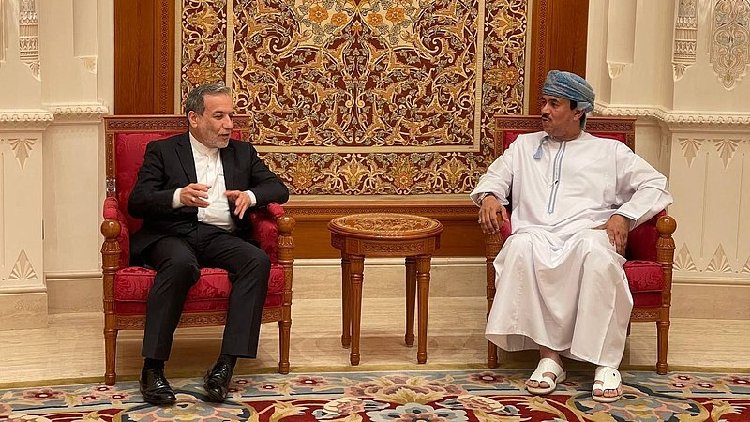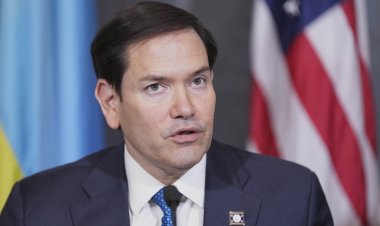Iran Maintains 'extremely cautious' Stance on Outcome of Nuclear Discussions with U.S.
Iranian Foreign Minister Abbas Araqchi and U.S. Middle East envoy Steve Witkoff engaged in a third round of discussions in Muscat, facilitated by Omani mediators, lasting approximately six hours. This meeting occurred just a week after a second round in Rome, which both parties characterized as constructive.

Araqchi and U.S. Middle East envoy Steve Witkoff engaged in a third round of talks in Muscat for about six hours, utilizing Omani intermediaries. This meeting came a week after a second round in Rome, which both parties described as constructive.
"The negotiations are extremely serious and technical… there are still differences, both on major issues and on details," Araqchi stated in an interview with Iranian state television. "There is seriousness and determination on both sides… However, our optimism about the success of the talks remains extremely cautious."
He observed that the discussions had progressed to more detailed and technical topics in the third round of indirect negotiations.
"We exchanged our views in writing several times. In indirect talks, technical discussions require some precision, and, therefore, positions were mainly exchanged in writing," he explained.
A senior U.S. official characterized the talks as positive and productive, noting that both parties are set to meet again in Europe "soon."
"There is still much to do, but further progress was made on getting to a deal," the official added.
Earlier, Omani Foreign Minister Badr Albusaidi announced that negotiations would continue next week, with another "high-level meeting" tentatively scheduled for May 3. Araqchi mentioned that Oman would disclose the meeting venue.
Prior to the lead negotiators' discussions, expert-level indirect talks took place in Muscat to establish a framework for a potential nuclear agreement.
"The presence of experts was beneficial… we will return to our capitals for further reviews to see how disagreements can be reduced," Araqchi noted.
An Iranian official privy to the talks described the expert-level negotiations as "difficult, complicated and serious."
Araqchi asserted that the sole objective of these negotiations is "to build confidence about the peaceful nature of Iran's nuclear program in exchange for sanctions relief."
In an interview published Friday by Time magazine, U.S. President Donald Trump remarked, "I think we're going to make a deal with Iran," while reiterating a threat of military action should diplomacy fail.
Iran had previously entered into a nuclear agreement, formally known as the Joint Comprehensive Plan of Action, with six major nations – the U.K., China, France, Germany, Russia, and the U.S. – in July 2015. This deal involved Iran accepting limitations on its nuclear program in exchange for sanctions relief.
However, the U.S. pulled out of the agreement in May 2018 during Trump's first term and reinstated sanctions, which led Iran to reduce some of its nuclear commitments. Attempts to revive the nuclear deal have not yielded significant results.
Oman has played a mediating role in facilitating dialogue between Iran and the U.S. to help bridge differences and promote regional stability. The inaugural round of talks took place in Muscat on April 12, followed by a second round in Rome a week later.
Aarav Patel contributed to this article for TROIB News












